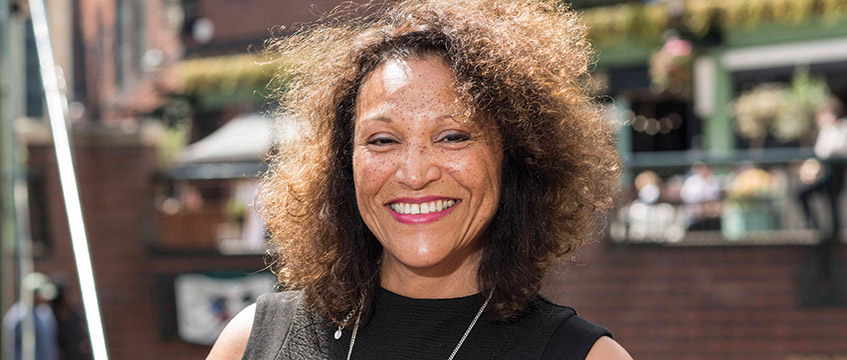The West Midlands begins 2018 radiating confidence. Home of the UK’s most investible city, 2021’s City of Culture and, a year later, the Commonwealth Games, awards and accolades are coming thick and fast.
Mayor Andy Street is pushing hard for other prizes, too – greater powers and the relocation of totemic businesses from London to the region. Much has been achieved, but with Street promising an £8bn, 30-year investment programme, much more is yet to be delivered.
Responsibility for capitalising on all this promise falls to the first chief executive of the West Midlands Combined Authority, Deborah Cadman. The opportunity to work with Street and return to her home town of Birmingham last September was “irresistible”, she says.
>>Your chance to quiz Cadman directly: the WMCA’s first ceo will be appearing at EG’s Question Time Birmingham. Click here to register for the free event
And she has no doubts that the region’s new leadership team will succeed – despite disruptive macro events, despite the risks attached to headline projects and despite tensions along the way.
Cadman describes herself as “blessed and challenged in equal measure” as she seeks to deliver on a brief that straddles skills, transport, housing, regeneration and more. And hers is not a growth-at-all-costs agenda: “It’s around being very clear about inclusivity and local people being able to touch, taste and feel the benefits.” She knows which investors she wants to work with – and which she doesn’t.
Time for tech
At the heart of the investment story sit occupiers. HSBC and Deutsche Bank are among the corporates to have committed to Birmingham in recent years, but whatever the importance of the financial services sector, it is digital, tech and advanced manufacturing businesses that turn heads these days.
That’s why Channel 4 is Street’s principal target. Not everyone at the broadcaster is keen to move from the capital but the government sees merit and the mayor sees an occupier that could be worth as much as £5bn to the local economy over a decade.
So will we see the channel behind Bake Off and Gogglebox take up residence in Birmingham? “Yes,” says Cadman with absolute conviction.
“The elevator pitch is High Speed 2, which means that the heart of the region will be accessible to London within 40-45 minutes. But it’s not just about the connectivity because the investment we’re making in travel infrastructure is quite phenomenal, so that people can get in, out and around the region much more easily.
“London is overheating at the moment and investors are looking elsewhere to invest – and Birmingham and the West Midlands has got to be the next place for significant investment.
“We’ve got the youngest, most diverse workforce outside London. We’re attracting the most amazing companies. We’re home to some of the global R&D around autonomous and electric engines. There is a sense that if you’re a hi-tech digital company, that supply chain is already being generated. People are hungry for that sector to grow and develop in the West Midlands.”
Contribution
She has a message for investors eyeing opportunities, too. “If you want to come and join us on this phenomenal journey, if you want to make a contribution, if you want to benefit from investing in the West Midlands, it has to be done in the right way. So you can’t just come and build and then leave. You know you’ve got to have a conversation with us about what it means for the community.
“So our offer to them is that we will provide them with good, highly skilled people. We’ll provide them with the right infrastructure. We will work with them to negotiate with utilities companies to make sure that the power supply is there and we will work with them to make sure that the planning arrangements are as smooth as possible. So we’ve got quite a compelling offer to make it attractive for them, but actually they’ve got to contribute more than just coming and building and getting a profit and leaving.”
The WMCA will help deliver homes, too. Gareth Bradford, the former DCLG and Number 10 housing adviser, is Cadman’s latest recruit. “We are committed to delivering 215,000 homes by 2031 and that’s a challenge but it’s a challenge that we really are up for,” she says. “We’re working closely with government, negotiating a new housing deal, and working with Homes England.”
The spatial plan is also in her in-tray. Here she wants to ensure that the whole region benefits from growth. That requires working closely with regional planning authorities.
“It’s part of my job to provide the glue and make all the different elements of this stack up to something that the residents of the West Midlands can benefit from. It’s not just building houses, it’s creating real communities for people. It’s not just remediating brownfield land, it’s bringing places back into use after they have lain dormant for a long time.
“It’s about reducing and challenging the marginal viability of places so that investors see an attractive proposition and it’s about pulling together those investment propositions in a really compelling way.”
Influence
Looking ahead, Cadman’s position as the glue joining together multiple interest groups will only become more important. With more influence than direct power, she will need to convince government that further devolution will deliver far faster economic growth for the region, and ultimately for UK plc. And with 18 local authorities and four local enterprise partnerships marching under the WMCA flag, she needs to be diplomatic and persuasive in taking a diverse group forward.
“Four months ago I was chief exec of a local authority, so I am of that world and I get the challenges that working in a local political environment brings,” she says, pointing to her six years running Suffolk County Council.
“The way in which I like to work is very collaborative, helping smooth out some of those challenges. Of course there are going to be difficulties. You know, there are seven met leaders and five of them are of different political persuasions. But the most important thing to continuously bring it back to is: ‘Why are we doing this? Why should we work in a different way?’ And the answer to that is we all want sustainable economic growth for the residents of the West Midlands.”
Main image: © Dale Martin
Birmingham’s sporting chance

A Birmingham City fan, Deborah Cadman understands the power of sport in placemaking.
“It’s why we are so excited about the Commonwealth Games in 2022, in addition to City of Culture in Coventry,” she says.
“That whole sports and culture dynamic of the economy is really important to us for a number of reasons. One is that I think it does promote economic growth. The brilliance of GVA [gross value added] uplift will just be phenomenal. But it also provides us with an opportunity to deliver very clearly for the people of the West Midlands.”
Glasgow’s Commonwealth Games in 2014 cost £543m. Other games have cost cities billions. Cadman may not be phased by risk, but she mixes ambition with mitigation – Birmingham is planning only one new-build venue, for instance.
“There’s always risk attached to a project of this scale,” she acknowledges.
“It’s about working with the Commonwealth Games Federation and the government but it’s also about working with the private sector. It’s about being very clear about the opportunities that something like the Commonwealth Games gives you. So our infrastructure investment is very much targeted around that area of the region where we want to see the games happen. It gives us huge opportunities as well.
“But the real challenge for us is making sure that the council tax payer is not left with a massive bill.”
The timing of the event is significant, too. The Urban Land Institute considers Birmingham the UK city with the best inward investment story, though the standing of all UK cities has been diminished by macro events.
“2022 will be an opportunity for the UK to really present the country to the world,” says Cadman. “Post Brexit, I think it’s a massive opportunity that we are really excited about.”
Deborah Cadman is among the speakers at EG’s Birmingham Question Time, which takes place on 27 February. For details go to www.egi.co.uk/eg-question-time.











